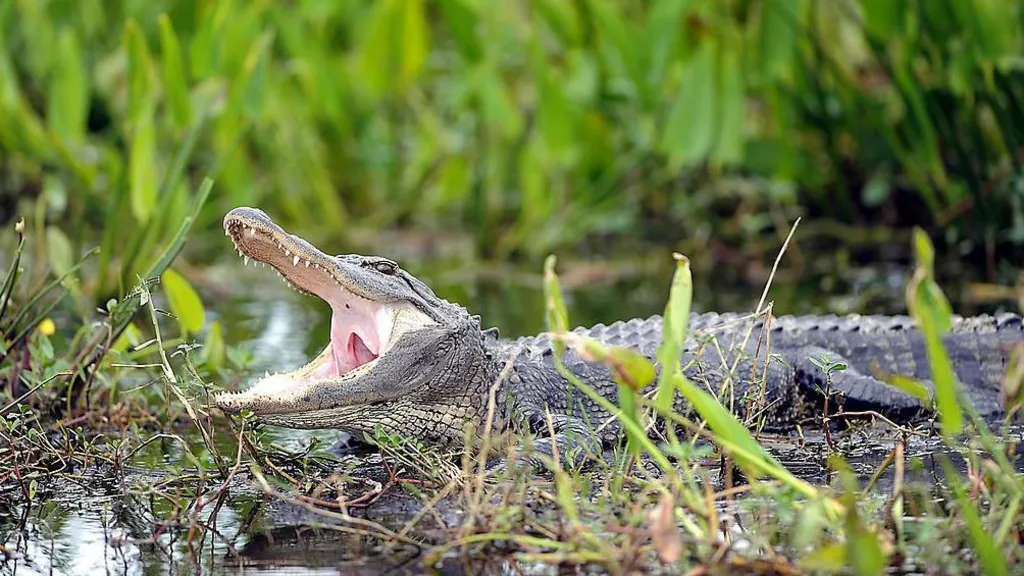As Tropical Storm Debby drenches South Carolina, local alligators and catfish are exploring unusual habitats—from puddles to backyard pools and even roads. In a viral video, Robert Moose Rini captures an alligator meandering across a rain-soaked Hilton Head Island road before pausing in a puddle. Rini first spotted the creature in the turn lane of the bustling road. “Imagine walking around the corner and seeing that sucker,” he remarked.
This kind of sighting fuels common fears, often amplified by dubious social media posts each hurricane season. While fake images of sharks swimming through flooded streets are notorious, real encounters with alligators in residential areas are a genuine concern for many in Florida, Georgia, and the Carolinas.
Wildlife experts note that alligators generally remain close to their natural freshwater habitats. They typically burrow down when a storm approaches. However, it’s not unusual for them to appear near human developments, such as golf courses and residential neighborhoods, where freshwater ponds and wetlands are nearby.
Earlier this summer, Hurricane Beryl and Tropical Storm Alberto were linked to a surge of nearly 200 crocodiles venturing into populated areas in Tamaulipas, Mexico, according to the Austin American-Statesman. In South Carolina, videos of alligators on roads are making the rounds. One Hilton Head resident told the Island Packet newspaper that a small gator took a dip in her pool’s shallow end.
South Carolina real estate agent Mr. Rini, who has lived on Hilton Head since 1981, explains that while residents avoid lagoons where alligators live, these creatures can be difficult to spot in the dense foliage and murky waters, especially post-storm. “They don’t bother you if you don’t bother them. But if they’re around, remember—they’re wild animals and unpredictable,” he says. He often warns prospective buyers with pets and young children about the potential for encounters.
The large size, powerful jaws, and prehistoric appearance of alligators evoke fear across the US coastal South. While females typically max out at around 10 feet, males can grow even larger. Though they primarily feed on fish, amphibians, and small mammals, alligators will snap at anything that ventures too close.
The Florida Fish and Wildlife Conservation Commission advises that even in areas where people have learned to coexist with alligators, the risk of conflict remains. The horror film Crawl (2019) dramatizes this fear, portraying a father and daughter battling a pack of aggressive alligators invading their home through hurricane floodwaters.
Experts stress that if left alone and treated with caution, alligators generally avoid human interaction. However, humans pose threats to these creatures, such as through vehicle collisions or becoming trapped in storm drains. “Most are just looking for a safe place to wait out the storm,” says Matt Kraycar of K&K Wildlife Services.
Alligators aren’t the only animals on the move during Debby’s path. Videos have also surfaced showing walking catfish—an invasive species from Southeast Asia—emerging in puddles in Florida and South Carolina. While these slippery fish are attracting attention, experts warn that the greatest risk to humans in floodwaters comes from snakes, which are much harder to spot.
